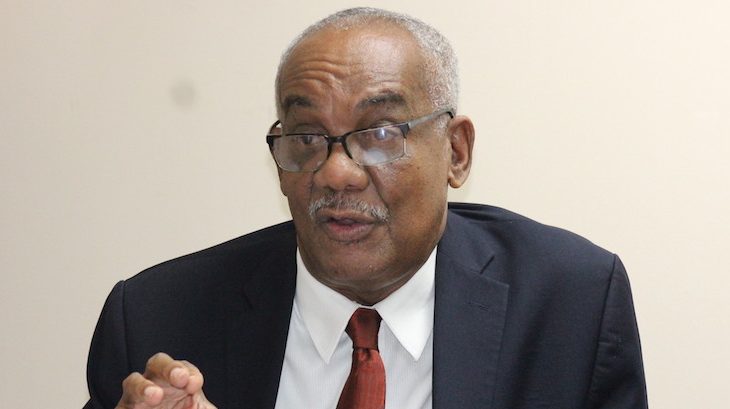
T he retired judge who once ran the quasi-judicial Employment Rights Tribunal (ERT) has slammed the plan to transform it into a full-time body, urging the tribunal be elevated to High Court level. Retired Justice Christopher Blackman said on Wednesday that the government’s proposal is futile unless the tribunal’s rank is upgraded to reflect its importance. “It has to rank above a magistrate’s court and near to a High Court level, otherwise all you will end up with is a full-time frustrated chairman,” he said, stressing that without this elevation, the change would be ineffective.
“You will be spinning top in mud if you have a full-time chairman and there is not a fundamental change in the status of the tribunal.” His comments came a day after Minister of Labour Colin Jordan announced at a regional policy meeting hosted by the non-governmental Caribbean Policy Development Centre (CPDC) at the Crane Resort that the ERT would transition to a full-time tribunal by the end of the year. “I expect that the Employment Rights Tribunal, that tribunal set up by the Employment Rights Act , will be able to move to a full-time tribunal before the end of this calendar year,” he stated, noting that the full-time operation would help streamline processes and reduce the longstanding delays in resolving employment disputes.
Justice Blackman argued that merely changing the tribunal’s structure would not address its fundamental shortcomings. He noted that its current low status meant that lawyers prioritise other courts over the ERT, hindering its effectiveness. “Lawyers are not going to leave the Supreme Court to come to the tribunal.
You have to change the hierarchy of the tribunal to the level of the Supreme Court or near its level,” he contended. Justice Blackman, who also chaired the Constitutional Reform Commission (CRC), cited his own experience as ERT chairman, recalling how a particular attorney lectured him during his tenure to illustrate the tribunal’s perceived low status. “He took me through all the aspects of the Act to point out that ‘we were the lowest of the low,’” the former chairman recounted.
He argued that if the government was serious about reform, it needed to adopt the model of the Industrial Relations Court in Trinidad and Tobago, which operates on par with the High Court. “This proposed full-time chairman will achieve nothing unless the structure of the tribunal is altered near the hierarchical level of the High Court,” Justice Blackman insisted. The tribunal, established under the Employment Rights Act of 2012, provides a formal avenue for workers to resolve disputes involving unfair dismissals and other workplace grievances.
The panel has been hampered by its part-time structure and frequent backlogs, with the number of unresolved cases reaching as high as 206 at one point. Jordan acknowledged these issues and emphasised the need for a more robust operational framework. He noted that the government’s plan to make the ERT a full-time tribunal was part of a broader strategy to reform the Employment Rights Act .
A white paper detailing these reforms is expected to be submitted to ministers soon, said Jordan, adding that the changes were imminent. The paper will include the necessary steps for transitioning the tribunal to a full-time operation, providing a legal framework for the tribunal’s expanded role. The minister added that resources would be increased to match the tribunal’s expanded role, including additional staffing and equipment.
He explained that the government aims to enable the tribunal to hold multiple hearings simultaneously, thereby tackling the backlog of cases more effectively. In addition to introducing new rules and transitioning the tribunal to full-time operation, Jordan said the government recognised the need for increased resources to support the body’s expanded role. He noted there will be a “need for expansion of resources” which includes human resources and equipment to manage the tribunal’s workload more effectively.
[email protected].










